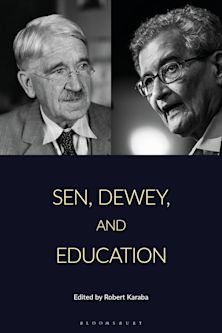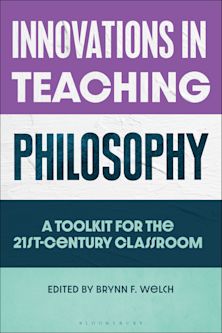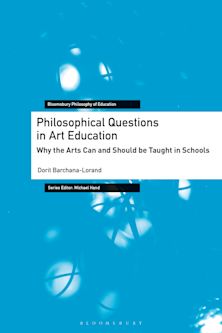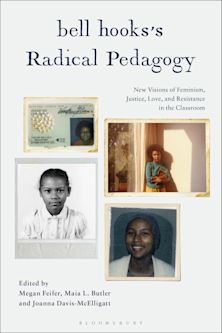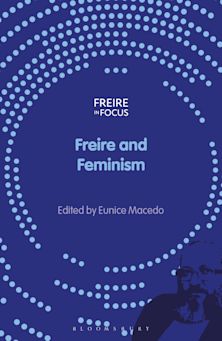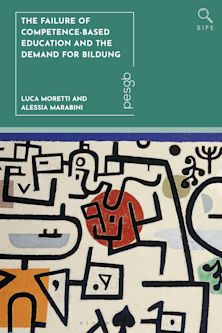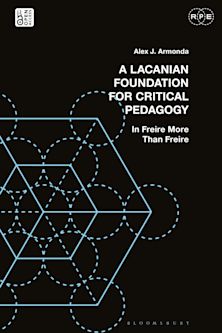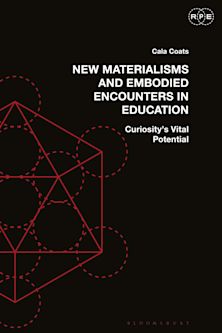- Home
- ACADEMIC
- Education
- Philosophy of Education
- Educating for Democracy
Educating for Democracy
Paideia in an Age of Uncertainty
Alan M. Olson (Anthology Editor) , David M. Steiner (Anthology Editor) , Irina S. Tuuli (Anthology Editor) , Mona Abousenna (Contributor) , Alexander Ageev (Contributor) , Alexander Chumakov (Contributor) , William Desmond (Contributor) , Ovadia Ezra (Contributor) , Eduard Girusov (Contributor) , Charles L. Glenn (Contributor) , Bradley Googins (Contributor) , Sidney Griffith (Contributor) , Elmer Hankiss (Contributor) , Vittorio Hosle (Contributor) , Elena Karpuhina (Contributor) , Steven Katz (Contributor) , Nur Kirabiev (Contributor) , Vladislav Lektorsky (Contributor) , Igor Lukes (Contributor) , Alexei Malashenko (Contributor) , Katherine Marshall (Contributor) , Alan Olson (Contributor) , James Post (Contributor) , Sheila Puffer (Contributor) , Kurt Salamun (Contributor) , John Silbur (Contributor) , David Steiner (Contributor) , Viachaslav Stepin (Contributor) , Bassam Tibi (Contributor) , Elena Trubina (Contributor) , Irina Tuuli (Contributor) , Mourad Wahba (Contributor) , Gregory Walters (Contributor)
Educating for Democracy
Paideia in an Age of Uncertainty
Alan M. Olson (Anthology Editor) , David M. Steiner (Anthology Editor) , Irina S. Tuuli (Anthology Editor) , Mona Abousenna (Contributor) , Alexander Ageev (Contributor) , Alexander Chumakov (Contributor) , William Desmond (Contributor) , Ovadia Ezra (Contributor) , Eduard Girusov (Contributor) , Charles L. Glenn (Contributor) , Bradley Googins (Contributor) , Sidney Griffith (Contributor) , Elmer Hankiss (Contributor) , Vittorio Hosle (Contributor) , Elena Karpuhina (Contributor) , Steven Katz (Contributor) , Nur Kirabiev (Contributor) , Vladislav Lektorsky (Contributor) , Igor Lukes (Contributor) , Alexei Malashenko (Contributor) , Katherine Marshall (Contributor) , Alan Olson (Contributor) , James Post (Contributor) , Sheila Puffer (Contributor) , Kurt Salamun (Contributor) , John Silbur (Contributor) , David Steiner (Contributor) , Viachaslav Stepin (Contributor) , Bassam Tibi (Contributor) , Elena Trubina (Contributor) , Irina Tuuli (Contributor) , Mourad Wahba (Contributor) , Gregory Walters (Contributor)
This product is usually dispatched within 1 week
- Delivery and returns info
-
Free CA delivery on orders $40 or over
You must sign in to add this item to your wishlist. Please sign in or create an account
Description
The central conflicts of the world today are closely related to cultural, traditional, and religious differences between nations. As we move to a globalized world, these differences often become magnified, entrenched, and the cause of bloody conflict. Growing out of a conference of distinguished scholars from the MiddleEast, Europe, and the United States, this volume is a singular contribution to mutual understanding and cooperative efforts on behalf of peace. The term paideia, drawn from Greek philosophy, has to do with responsible education for citizenship as a necessary precondition for effective democracy. The problems discussed here are crucial, but not simple. How can we find shared ethical principles on which to build international consensus? How can religious tolerance make inroads in societies accustomed to restrictive fundamentalism? What might bring about de-dogmatization of education in the Middle East as a necessary condition for free and rational inquiry and the broader vistas required by democracy? All of these issues highlight the underlying question, 'What is education really for?' Finally, the volume confronts the promises and perils of economic globalization. Noting that one third of the world's population lives in abject poverty, business has become a battlefield where ethics and trust are clearly at stake.
Table of Contents
Part 2 Foreword
Part 3 Paideia in Philosophy and Religion
Chapter 4 Introduction: Paideia, Philosophy, and Religion
Chapter 5 Paideia: Anachronism or Necessity?
Chapter 6 Paideia as the Unity of Knowledge and Enlightenment
Chapter 7 Science, Education, and the Transformation of Civilization in the Twenty-First Century
Chapter 8 The Noospheric Imperative for Paideia in the Twenty-First Century
Chapter 9 Paideia and Critical Thinking
Chapter 10 Inter-Religious Dialogues During the Middle Ages and Early Modernity
Chapter 11 The Impact of Modernity on Jewish Life
Chapter 12 Paideia and Adab in Islam
Chapter 13 The Changing Face of Islamic Radicalism
Chapter 14 Christian-Islamic Dialogue in the Twenty-First Century
Part 15 Paideia and Education
Chapter 16 Introduction: Paideia and Education
Chapter 17 Paideia: Anachronism or Necessity?
Chapter 18 Paideia in and Age of Uncertainty
Chapter 19 After NATO, Paideia?
Chapter 20 Liberal Education in the Fear of Anti-Democracy
Chapter 21 Prescribing Orthodoxy
Chapter 22 De-Dogmatizing Reason
Chapter 23 Education and Democratization in an Age of Islamism
Chapter 24 Education to Conscience and Political Disobedience: The Role of the Role Model
Chapter 25 Face to Face with Eudaimonia: The Post-Soviet Teacher's Identity
Chapter 26 Reformatting the Idea of a University
Part 27 Paideia and Economics
Chapter 28 The Ethics of Political Economy: A Roundtable
29
Part 30 About the Contributors
Product details
| Published | Aug 11 2004 |
|---|---|
| Format | Hardback |
| Edition | 1st |
| Extent | 316 |
| ISBN | 9780742535398 |
| Imprint | Rowman & Littlefield Publishers |
| Dimensions | 233 x 176 mm |
| Publisher | Bloomsbury Publishing |
About the contributors
Reviews
-
Fundamentalist religion, identity politics, and post-modernism would seem to have driven us far from the Enlightenment preoccupation with integrative humanist paradigms of education of the kind the Greeks called Paideia, the Germans called Bildung, and the French called Formation. But as this penetrating collection shows, the aspiration to humanistic knowledge and liberal learning is challenged but not defeated by the post-modernity and its maladies. Indeed, as Olson, Steiner, Tuuli,and their thoughtful colleagues show, the striving for education and knowledge, whether in religion (the intersection with Islam is especially interesting), pedagogy, or economics, can be fortified without resorting to reactionary nostalgia for the ancients by a careful understanding of paideia. Don't let the anthology format fool you-this is an important book with a clear center of gravity that should be of value to scholars, teachers, and students alike..
Benjamin R. Barber, University of Maryland
-
Educating for Democracy: Paideia in an Age of Uncertainty is a breath of sorely needed fresh air. Situated in the ivory tower, philosophers must become pertinent to the current state of the world. No other profession manifests so explicitly the gap between theory and praxis, which threatens to make academia insignificant during transitional times. This book is a surprisingly successful attempt to bridge this divide by use of paideia, the calling of committed philosophers. Coming from several cultural contexts, both religious and secular, the contributors to this volume show-teach-the kind of critical work necessary for the politics of education and the education of and to politics.
Anat Biletzki, Quinnipiac University, USA
-
Paideia: Anachronism or Necessity? is the question that runs as the principal theme throughout this volume. The answer is paideia as a possibility and a potential for democratic education. In an exciting effort to draw on an ancient idea in an historical moment facing new and unheard of problems, the authors explore the meaning of the classical Greek concept of paideia in the fields of philosophy, religion, education, and economics. Bringing together contributions from the United States and Russia, from the Middle East and Europe, this volume engages in an international conversation on some of the most pressing questions of our time.
Krzysztof Michalski, director, Institut für die Wissenschaften vom Menschen (Vienna and Boston)
-
Educating for Democracy marks an important effort by an international group of philosophers...to bring their disciplined insights and classical educational heritage together toward analysis of religious, political, and economic conflicts playing out on the world stage.
2008, Teaching Theology & Religion
-
This volume, due substantially to the leadership of Alan Olson, continues the work that led to the XXth World Congress of Philosophy, held in Boston in the summer of 1998, whose invited program appeared shortly thereafter in twelve volumes! This new volume contains papers delivered in two subsequent conferences that successfully continued the most welcome and admirable international cooperation of the Congress, on some of the same main themes.
Ernest Sosa, Brown University
-
Fundamentalist religion, identity politics, and post-modernism would seem to have driven us far from the Enlightenment preoccupation with integrative humanist paradigms of education of the kind the Greeks called Paideia, the Germans called Bildung, and the French called Formation. But as this penetrating collection shows, the aspiration to humanistic knowledge and liberal learning is challenged but not defeated by the post-modernity and its maladies. Indeed, as Olson, Steiner, Tuuli, and their thoughtful colleagues show, the striving for education and knowledge, whether in religion (the intersection with Islam is especially interesting), pedagogy, or economics, can be fortified without resorting to reactionary nostalgia for the ancients by a careful understanding of paideia. Don't let the anthology format fool you-this is an important book with a clear center of gravity that should be of value to scholars, teachers, and students alike.
Benjamin R. Barber, University of Maryland

















